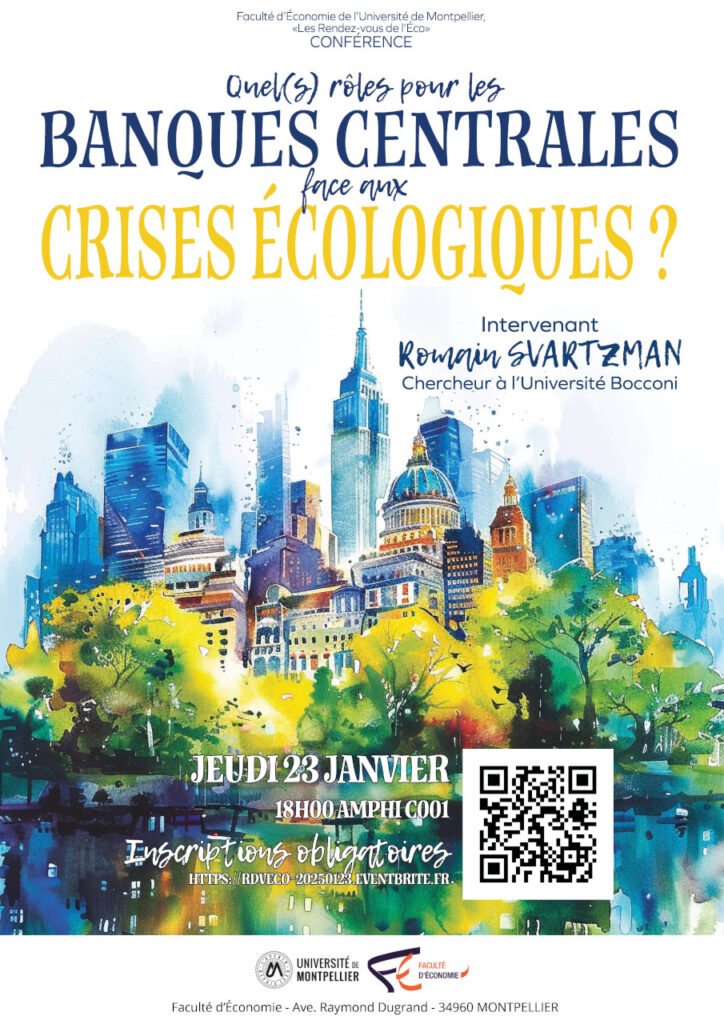Les Rendez-vous de l’Eco “What role(s) should central banks play in response to ecological crises?”
This event has passed!
As part of the "Rendez-vous de l'Eco"series , the Faculty of Economics at the University of Montpellier is organizing a conference on the theme: "What role(s) should central banks play in the face of ecological crises?" on Thursday, January 23, 2025, starting at 6:00 p.m., at the Richter Campus of the Faculty of Economics.

What roles can and should central banks and financial supervisory authorities play in the green transition? This question, which was almost entirely absent from academic and political debates until the late 2010s, has gained momentum in recent years. The numerous academic articles and public policy proposals that have emerged on this subject can be classified into two categories: (i) a risk-based approach that aims to integrate climate and nature considerations into the day-to-day operations of central banks, without calling into question their current mandates and practices; (ii) a proactive approach that aims to put central banks at the service of the transition, emphasizing their ability to redirect financial flows.
Both approaches appear to face significant limitations. In particular, the scenarios (implicit or explicit) informing existing studies often overlook issues that are crucial for central banks, such as: the ability of different transition scenarios to generate GDP growth and opportunities for capital accumulation; the fact that the transition will likely take place in a world of increasing physical shocks, which could exacerbate phenomena such as profit-price spirals; the new geo-economic reality in which high-income countries may not be the leaders in "green" technologies, leading to a major reconfiguration of trade and capital flows, which could then have a considerable impact on the role of central banks (e.g., what new reference currency on the world stage?).
Assessing the role of central banks and financial supervisors in the ecological transition therefore requires an interdisciplinary approach, combining a political economy approach to money and finance with socio-technical perspectives on what the transition could actually look like. This presentation will aim to propose different (non-exhaustive) approaches for developing this agenda.
Speaker:
- Romain Svartzman is a researcher at Bocconi University (within the Institute for European Policymaking) and an associate researcher at the Institute for Innovation and Public Purpose (IIPP, University College London). His research focuses on developing ecological transition scenarios and assessing their macrofinancial implications, as well as on avenues for reforming the international monetary and financial architecture. Romain previously worked as a senior economist at the Banque de France. He obtained his PhD in ecological macroeconomics from McGill University (Canada). spread across all continents. He has just been appointed (July 2024) President of the French National Committee of UNESCO's Intergovernmental Hydrological Program.
Receive a weekly summary of the UM agenda
* By entering your email address, you agree to receive a weekly summary of the UM calendar by email and acknowledge that you have read ourprivacy policy. You can unsubscribe at any time using the unsubscribe linkor by contacting us by email.
